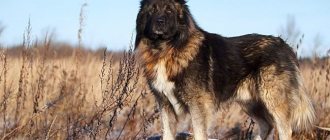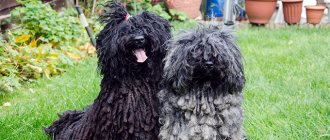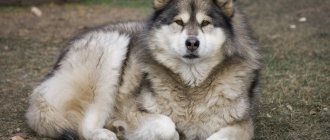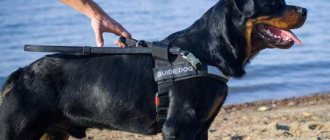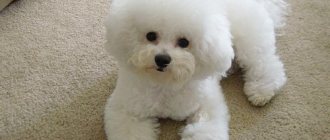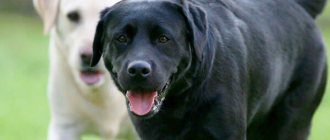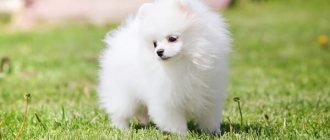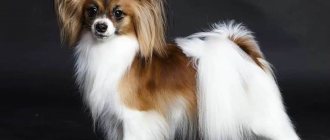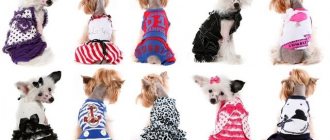If you're looking to get a new pet, you're probably wondering about the personality traits that certain dog breeds have. Whether you want a puppy that will snuggle on the couch with you or one that can go on long runs and hikes with you, the dog's personality traits are largely determined by which of the seven main breed classes. she relates. If you already know what kind of dog you would like to have, find out which breed is best for you and/or your family. Your local animal shelter is a great place to find your perfect dog. They have both purebred dogs and mixed breeds. This article breaks down breed types according to the American Kennel Club.
Traits of Herding Dogs
Dog breeds that belong to the herding group, according to the American Kennel Club, are intelligent, serious, and highly scented. Because they exhibit strong possessive instincts towards “their” territory and “their” people, they make excellent watchdogs. However, they can rush at people and bite - this is their instinctive reaction, because their ancestors were bred specifically to herd and protect herds. These dogs are very hard working and athletic.
Herding dogs are intelligent and are one of the easiest (and most willing) dog breeds to train: they are well suited to dog sports and competitions.
Herding dogs fit well into large families: they love to spend time in the company of people. Even if you don't have a big house, but you have a big yard and other animals, these dog breeds will be a great fit for you. Partnership is very important to these dogs, so bring her into your family if you are looking for a loyal, loving pet.
Breeds belonging to the herding group: Australian Cattle Dog, Australian Shepherd, Bearded Collie, Belgian Shepherd, Border Collie, German Shepherd, Pembroke Welsh Corgi, Puli and Sheltie.
How an animal expresses different feelings
Emotions directly affect how a dog behaves. Having dealt with the basic signals, let's try to give more specific examples that combine sounds and gestures.
Love
A cheerful wagging of the tail and slightly perked ears are a good sign, signaling a friendly attitude. Four-legged animals express their love by licking, gazing into the eyes and lightly but persistently poking the hand with their nose.
Fear
The way fear manifests itself is individual. Some pets tremble violently and hide at the owner’s feet, others show aggression, howl and even pee. In both cases, excited animals lower and tuck their tail, covering the anus with it.
You cannot punish for fear, but the condition itself can and should be corrected. Particular attention should be paid to phobias - pronounced obsessive fears that worsen in certain situations.
Joy
Out of joy, the dog’s behavior becomes as playful as possible. She tries to jump on her owner and lick his face. Flickering under your feet, the animal is likely to bark profusely.
A pet's cheerful mood can be determined by actively wagging its tail. At this moment, the expression of the muzzle is relaxed or forms a smile.
Interest
Interest in an object, another animal or person is manifested by a gaze and twitching of the ears turned towards the target. The dog itself can bark or remain silent.
Sadness or resentment
A sad or offended pet looks despondent. His tail and ears droop limply. While in a sitting or standing position, the dog constantly lowers its head, trying not to meet the person’s gaze. Thus, he tries to hide from others and practically does not react to stimuli.
Character Traits of Hunting Dogs
There are two main types of hunting dogs: scenthounds and sighthounds. Greyhounds look out for their prey. They are flexible and fast. The hounds following the scent sniff out what they are looking for. They are strong, but slow.
Both of these types of hunting dogs are very inquisitive, independent creatures. They can be trained, but they must understand why they are being taught. Their intelligence is a double-edged sword, and if they don't think training is important, they will simply ignore all your hard work. For this reason, it is better to train them with the help of professionals.
Hunting dogs are a good choice for people who have a safe place for their pets to explore. They must be kept on a leash at all times, otherwise they may run away and get lost. They also need a patient owner, as hunting dogs often want to "stalk" different scents or scents that may not interest you.
Breeds that belong to the group of hunting dogs: American hounds, basset hounds, beagles, dachshunds, greyhounds and greyhounds, Norwegian Elkhounds, Rhodesian Ridgebacks, coon hounds and small English greyhounds.
timidity
A dog's fearfulness can manifest itself as aggression. The tendency to be afraid may manifest itself in connection with the corresponding behavior of the owner. Researchers note that dogs can sense human fear by smell. As a result, the dog also becomes scared. Sometimes when your dog senses your fear, he will want to protect you, which causes behavior problems. Of course, in some situations it is simply impossible to control your stress, however, try to monitor your stress level. Then your four-legged friend will be more confident in himself.
Personality Traits of Sporting Dogs
Sporting dogs are always active and alert. They easily cope with many tasks at once and are easy to train. They are bred for hunting and, depending on the subclass of the breed, they will find, point, "smoke", hold or present their prey to the hunter. Water dogs of this class love to swim and will happily spend the whole day on the shore. Sporting dogs make excellent therapy dogs or guide dogs.
Sporting dogs are perfect for those who are willing to keep them busy and entertained on a regular basis. If you're looking for a pet that will keep up with your active lifestyle, an athletic dog may be your ideal companion. They also make excellent family dogs.
Breeds belonging to the sporting group are: Chesapeake Bay Retriever, Cocker Spaniel, Golden Retriever, Irish Setter, Korean Jindo, Labrador Retriever, Pointer and Weimar Pointer.
Terrier Personality Traits
Known for their playful and cheerful disposition, terriers come in a variety of shapes and sizes. They have a strong possessiveness and will bark at anyone who comes near their home or family. They also like to hunt small animals (such as foxes or rats) and dig in search of their prey.
Terriers are a good choice for patient but energetic owners. Terriers love to exercise because it's a game for them. If you can match the energy, you will definitely become best friends with them.
The breeds that belong to the terrier group are: Jack Russell Terrier, Rat Terrier, Miniature Schnauzer, Scottish Terrier, Staffordshire Terrier and West Highland White Terrier.
Useful video
To find out whether a dog’s character is related to its breed, watch this video:
Similar articles
- Otitis in a dog (purulent, allergic, fungal...)
What does the veterinarian recommend? Therapy for otitis in dogs is complex and has a local and general focus. Read more - Obesity in dogs: symptoms, treatment, consequences without...
Obesity in dogs is becoming increasingly common. Symptoms first become a reason... Getting rid of extra pounds is complex and long-term. Read more
- Pneumonia in dogs: symptoms, treatment, antibiotics...
Puppies and older dogs are susceptible to the disease. ... Treatment is complex, based on long-term use of antibacterial drugs and... Read more
- Heart disease in dogs: causes, symptoms of congenital...
Congenital and acquired heart defects in dogs: when is there a chance to save... Aortic stenosis is manifested by the subvalvular nature of the pathology. Read more
- Cholecystitis in dogs: symptoms, acute and chronic...
In dogs, the disease is observed in a chronic form more often than in an acute form... Acute and chronic cholecystitis. Veterinary specialists by nature... Read more
Personality Traits of Companion Dogs
Want to get everything dogs love, but in a compact form? Then a companion dog may be perfect for you. They may be small, but they make up for their size in character. Indoor dogs are full of personality and have been bred for generations to be reliable companions. Most of them are very loyal, and some can be real owners - depending on the breed and upbringing.
Decorative dog breeds are ideal for people living in small apartments and houses. They don't require much space, but deserve a lot of attention. They can be perfect for adult couples without children, or single people who work a lot.
Breeds that belong to the companion dog group are: Cavalier King Charles Spaniel, Chihuahua, Chinese Crested Dog, Italian Greyhound, Maltese, Pomeranian and Pug.
Genetics or upbringing
All dogs differ quite noticeably in character . And the individuality or typological characteristics of an animal are determined by three main components:
- hereditary traits;
- signs of individuality;
- degree of expression of typological features.
This is interesting! According to experts, the combination of typological character traits of a dog largely depends on the characteristics of the animal selection strategy adopted in each breed, but in most cases all dogs are friendly and completely human-oriented.
The listed components are not directly dependent on each other, so shy dogs are not necessarily subdominant and sensitive to pain, and brave and independent pets are not always dominant and insensitive to pain. There are a large number of combinations of such components and their degrees of expression, thanks to which you can decide on the choice of a specific dog breed.
Return to content
Personality Traits of Service Dogs
Service dogs, which are a diverse group, were bred to assist people. The types of work they perform range from pulling sleds to guarding livestock. They are strong and smart, and are certainly trainable. Many of them act as guards, but if trained properly they can be quite friendly.
Service dogs are suitable for most people. If you have room for them, are consistent, and plan to keep them active, a service dog will be a great pet for you.
The breeds that belong to the working dog group are Akita, Boxer, Great Dane, Mastiff, Portuguese Water Dog, St. Bernard, Samoyed and Siberian Husky.
Personality Traits of Non-Sporting Dogs
The breeding of non-sporting breeds began with the breeding of service dogs that no longer performed the activities for which they were originally bred. For example, Dalmatians were bred to accompany horse-drawn carriages. Bulldogs were previously used as bull baiting dogs. Today, none of these dogs have to fulfill these roles, so they occupy their rightful place in the category of non-sporting dogs.
Breeds that do not fit into any of the above categories are included in the diverse group of non-sporting dogs. Some dogs may be small, but not small enough to be classified as toy dogs. Others may be hunters, but not classified as hounds or sporting dogs.
Non-sporting dogs can suit a variety of people. However, since every dog has a different personality, it is important to first meet your future puppy and find out if he will suit your lifestyle.
Breeds belonging to the non-sporting group: Bichon Frize, Boston Terrier, Bulldog, Dalmatian, Wolf Spitz, Lhasa Apso and Poodle.
While typical personality traits are common to most of these seven major groups, that doesn't mean your pet can't have other special personality traits. Not only might your beagle play detective in the yard, sniffing every square inch of grass for “clues,” but she’ll happily snuggle up on the couch with you on a lazy Sunday. Likewise, your companion dog may be small, but not enjoy curling up next to you as much as its larger counterpart.
Remember, every dog has its own personality traits, regardless of breed. Just because puppies of a certain breed group are extremely friendly in most cases does not mean that socialization and training do not play an important role in their development. Spend some time with your dog before you bring him home to determine for yourself whether you make a good teammate. And be honest with yourself: no matter how cute the puppy may seem to you, Great Danes will not make good apartment dogs, and tiny Chihuahuas are unlikely to love marathons.
Once you find the perfect pet for you, enjoy a long and fruitful relationship!
Contributor Bio
Erin Ollila
Erin Ollila believes in the power of words and that her message can bring a lot to people and even change them. Her writing can be found all over the web and in print, and includes interviews, commissioned articles, blog posts, and creative nonfiction. Erin is a fan of SEO and all things social media. She graduated from Fairfield University with a Master of Arts in Creative Writing. You can find her on Twitter @ReinventingErin or learn more about her at https://erinollila.com.
Behavior of the owner and other family members
Often, illiterate actions of the dog owner and family members negatively affect the character of the pet and provoke unwanted behavior in the animal. The character of a dog can be worsened by cruel treatment, the use of rudeness or physical force during training or in the process of education.
Beatings, as well as spanking and clicks on the nose can turn an adequate animal into a timid and angry dog that poses a real threat to everyone around. The character of a pet can be spoiled not only by an inappropriate attitude towards a dog, but also by excessive love, as well as permissiveness and connivance.
Important! A spoiled animal behaves inappropriately, so it is strictly forbidden to treat your pet from the table.
Among other things, it is imperative to explain to children the rules of behavior with a dog . Otherwise, even the most good-natured dog is capable of showing aggression and biting. It is very difficult to control an improperly trained dog, and in some cases absolutely impossible.
Return to content
